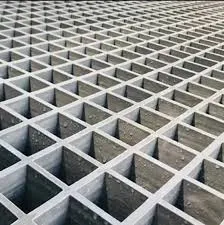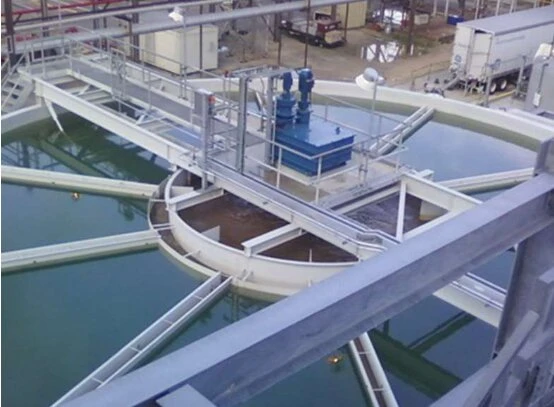
-
 Afrikaans
Afrikaans -
 Albanian
Albanian -
 Amharic
Amharic -
 Arabic
Arabic -
 Armenian
Armenian -
 Azerbaijani
Azerbaijani -
 Basque
Basque -
 Belarusian
Belarusian -
 Bengali
Bengali -
 Bosnian
Bosnian -
 Bulgarian
Bulgarian -
 Catalan
Catalan -
 Cebuano
Cebuano -
 China
China -
 China (Taiwan)
China (Taiwan) -
 Corsican
Corsican -
 Croatian
Croatian -
 Czech
Czech -
 Danish
Danish -
 Dutch
Dutch -
 English
English -
 Esperanto
Esperanto -
 Estonian
Estonian -
 Finnish
Finnish -
 French
French -
 Frisian
Frisian -
 Galician
Galician -
 Georgian
Georgian -
 German
German -
 Greek
Greek -
 Gujarati
Gujarati -
 Haitian Creole
Haitian Creole -
 hausa
hausa -
 hawaiian
hawaiian -
 Hebrew
Hebrew -
 Hindi
Hindi -
 Miao
Miao -
 Hungarian
Hungarian -
 Icelandic
Icelandic -
 igbo
igbo -
 Indonesian
Indonesian -
 irish
irish -
 Italian
Italian -
 Japanese
Japanese -
 Javanese
Javanese -
 Kannada
Kannada -
 kazakh
kazakh -
 Khmer
Khmer -
 Rwandese
Rwandese -
 Korean
Korean -
 Kurdish
Kurdish -
 Kyrgyz
Kyrgyz -
 Lao
Lao -
 Latin
Latin -
 Latvian
Latvian -
 Lithuanian
Lithuanian -
 Luxembourgish
Luxembourgish -
 Macedonian
Macedonian -
 Malgashi
Malgashi -
 Malay
Malay -
 Malayalam
Malayalam -
 Maltese
Maltese -
 Maori
Maori -
 Marathi
Marathi -
 Mongolian
Mongolian -
 Myanmar
Myanmar -
 Nepali
Nepali -
 Norwegian
Norwegian -
 Norwegian
Norwegian -
 Occitan
Occitan -
 Pashto
Pashto -
 Persian
Persian -
 Polish
Polish -
 Portuguese
Portuguese -
 Punjabi
Punjabi -
 Romanian
Romanian -
 Russian
Russian -
 Samoan
Samoan -
 Scottish Gaelic
Scottish Gaelic -
 Serbian
Serbian -
 Sesotho
Sesotho -
 Shona
Shona -
 Sindhi
Sindhi -
 Sinhala
Sinhala -
 Slovak
Slovak -
 Slovenian
Slovenian -
 Somali
Somali -
 Spanish
Spanish -
 Sundanese
Sundanese -
 Swahili
Swahili -
 Swedish
Swedish -
 Tagalog
Tagalog -
 Tajik
Tajik -
 Tamil
Tamil -
 Tatar
Tatar -
 Telugu
Telugu -
 Thai
Thai -
 Turkish
Turkish -
 Turkmen
Turkmen -
 Ukrainian
Ukrainian -
 Urdu
Urdu -
 Uighur
Uighur -
 Uzbek
Uzbek -
 Vietnamese
Vietnamese -
 Welsh
Welsh -
 Bantu
Bantu -
 Yiddish
Yiddish -
 Yoruba
Yoruba -
 Zulu
Zulu
Jan . 20, 2025 13:23
Back to list
Ladders & Handrails
FRP spraying pipes, an innovative solution in fluid transportation systems, are gaining recognition for their exceptional durability and performance in various industrial applications. Crafted from fiberglass-reinforced plastic, these pipes are meticulously engineered to withstand harsh environmental conditions, making them an integral component in industries like chemical processing, wastewater management, and oil and gas production.
Expertise in manufacturing and installing FRP spraying pipes is essential to maximize these benefits. Companies specializing in composite technology invest heavily in research and development to innovate and upkeep the standards necessary for premium FRP pipe production. Their expertise not only lies in fabricating the pipes but also in understanding the intricacies of each application to provide tailored solutions that meet specific industrial requirements. Ensuring proper installation, which is as critical as the quality of the pipes themselves, requires skilled technicians well-versed in the nuances of FRP systems. A testament to their authority and trustworthiness, leading manufacturers often comply with international standards and undergo rigorous testing and certification processes to guarantee product quality and safety. Clients seeking reliable solutions can look for certifications as a benchmark of credibility and performance assurance, making informed decisions when selecting FRP spraying pipes for their projects. In summary, the superiority of FRP spraying pipes in industrial applications is well-supported by their material composition, resilience against environmental aggressors, ease of installation, and cost-effectiveness over the long term. As industries continue to evolve, the demand for reliable and efficient piping solutions like FRP will only grow, positioning them as an authoritative choice for companies seeking to optimize their operations while maintaining the highest standards of safety and performance.


Expertise in manufacturing and installing FRP spraying pipes is essential to maximize these benefits. Companies specializing in composite technology invest heavily in research and development to innovate and upkeep the standards necessary for premium FRP pipe production. Their expertise not only lies in fabricating the pipes but also in understanding the intricacies of each application to provide tailored solutions that meet specific industrial requirements. Ensuring proper installation, which is as critical as the quality of the pipes themselves, requires skilled technicians well-versed in the nuances of FRP systems. A testament to their authority and trustworthiness, leading manufacturers often comply with international standards and undergo rigorous testing and certification processes to guarantee product quality and safety. Clients seeking reliable solutions can look for certifications as a benchmark of credibility and performance assurance, making informed decisions when selecting FRP spraying pipes for their projects. In summary, the superiority of FRP spraying pipes in industrial applications is well-supported by their material composition, resilience against environmental aggressors, ease of installation, and cost-effectiveness over the long term. As industries continue to evolve, the demand for reliable and efficient piping solutions like FRP will only grow, positioning them as an authoritative choice for companies seeking to optimize their operations while maintaining the highest standards of safety and performance.
Related Products









